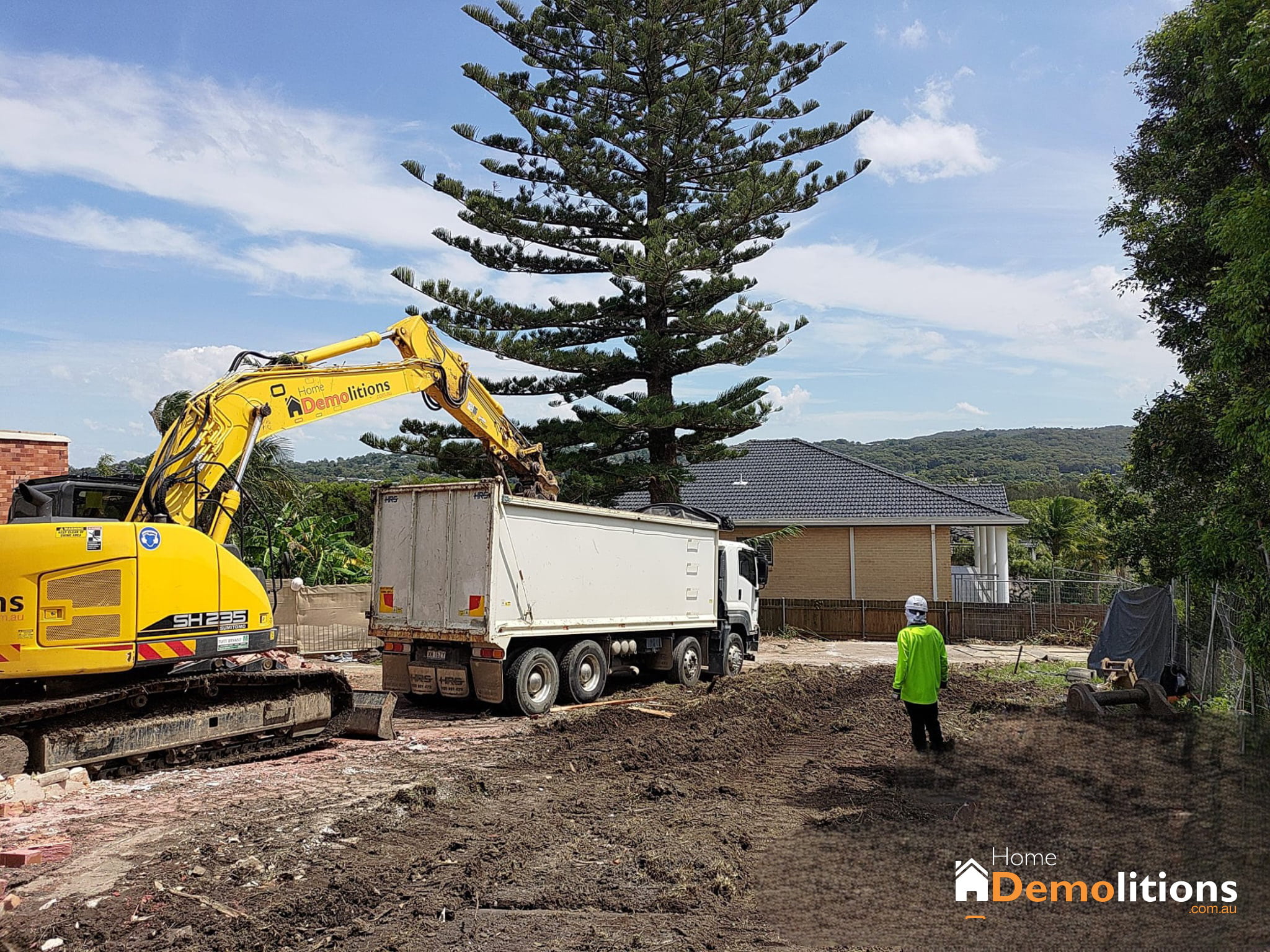Demolishing a home is a significant undertaking that requires careful planning and consideration. Whether you’re looking to clear the way for a new build or renovate an existing structure, several key factors must be considered before the demolition begins. At Home Demolitions, we ensure a seamless and efficient process, guiding you through every step. Here’s what you should know before you proceed with your demolition project.
1. Permits and Regulations
Before any demolition work can commence, securing the necessary permits is crucial. Local councils have specific regulations regarding demolition, including what methods are allowed and the conditions that must be met. Failing to obtain the proper permits can lead to fines and delays. Home Demolitions will assist you in navigating these legal requirements to ensure everything is compliant.
2. Demolition Methods
There are various demolition methods, each suited for different types of structures and circumstances. Some common methods include:
- Mechanical Demolition: Utilising heavy machinery for tearing down structures.
- Selective Demolition: Carefully dismantling parts of a building while preserving others.
- Implosion: Using explosives for large structures (though this is less common and highly regulated).
Understanding which method is best for your project is essential for efficiency and safety.
3. Disconnect Utilities
Prior to demolition, it’s vital to disconnect all utilities, including water, electricity, gas, and telecommunications. This step is essential for ensuring safety during the demolition process and is often managed by the demolition contractor. At Home Demolitions, we coordinate with utility companies to streamline this process.
4. Conduct Inspections
Before demolition, it’s important to conduct thorough inspections of the property. This helps identify any hazardous materials, structural concerns, or unique features that need to be addressed prior to demolition.
5. Hazardous Materials
Identifying and safely managing hazardous materials, such as asbestos, lead paint, and mould, is crucial. Proper protocols must be followed to ensure these materials are handled safely and disposed of according to regulations. Our team at Home Demolitions is experienced in identifying hazardous materials and ensuring their safe removal.
6. Debris Removal and Disposal
Demolition generates a significant amount of debris, and having a plan for its removal is essential. This may involve renting a dumpster or hiring a waste management service. Home Demolitions offers comprehensive debris removal services, ensuring the site is cleared efficiently and responsibly, including recycling salvaged bricks whenever possible.
7. Choosing Your Demolition Contractor
Selecting the right demolition contractor is crucial for a successful project. Look for contractors with experience, appropriate licensing, and positive reviews. At Home Demolitions, we pride ourselves on our professional team and our commitment to customer satisfaction.
8. Implementing Safety Measures
Safety should be the top priority during demolition. This includes establishing safety zones, using protective gear, and ensuring that all workers are trained in safety procedures. We take safety seriously and implement all necessary measures to protect our team and the surrounding community.
9. Arranging for Salvage
If there are elements of the home that can be salvaged, such as fixtures, appliances, or materials, consider arranging for their removal before demolition. This not only reduces waste but can also benefit those looking for affordable building materials.
10. Inform Your Neighbours
Communication is key in any demolition project. Informing your neighbours about the planned work helps manage expectations and fosters goodwill. Sharing your demolition timeline and any potential disruptions can go a long way.
11. Check for Asbestos
If your property was built before the 1990s, it’s essential to check for asbestos. This hazardous material requires special handling and removal by licensed professionals to ensure safety during demolition.
12. Building Survey
Conducting a building survey before and after demolition is essential. This helps ensure that the site is clear of any remaining hazards and meets all safety standards.
13. House Size and Construction Materials
Understanding the size of your house and the materials used in its construction will impact the demolition process. Different materials require different handling and disposal methods.
14. Utility Company Coordination
We take care of all communication with utility companies to ensure all services are properly disconnected and safety protocols are followed.
15. Begin Demolition
Once all preparations and safety measures are in place, the demolition can begin. The tear down of the house will follow all necessary safety precautions, including prior asbestos removal if required.
16. Cleanup and Waste Removal
Once demolition is complete, we handle the cleanup and removal of waste, ensuring the site is left safe and tidy. We also prioritise recycling materials whenever possible, including salvaged bricks, to minimise environmental impact.
Home Demolitions Can Do It All!
At Home Demolitions, we offer a comprehensive demolition service that takes care of everything from obtaining permits to safely disconnecting utilities and managing debris removal. Our experienced team is dedicated to ensuring your demolition project runs smoothly, safely, and efficiently.
Ready to get started? Contact us today for a consultation or to learn more about our services!









